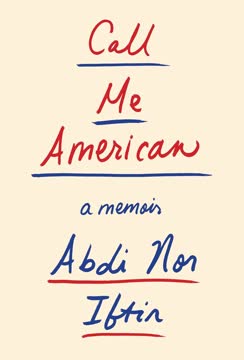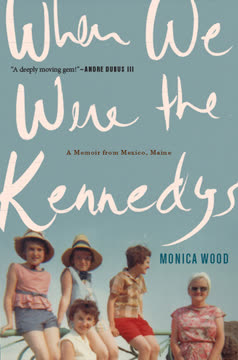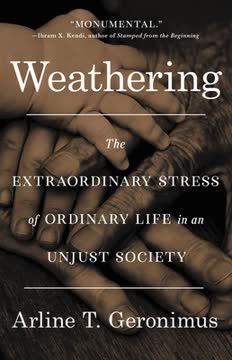Key Takeaways
1. From Nomad Peace to Urban Apocalypse
My parents never talked about their lives without talking about the lives of their parents and ancestors because to Somali nomads there is no individual life, only the life of your family.
A stark contrast. Abdi Nor Iftin's early life was shaped by the stark contrast between his parents' nomadic heritage and the brutal reality of war-torn Mogadishu. His mother, Madinah, born in the bush, cherished stories of herding animals, surviving wild predators, and a life deeply intertwined with nature and family. This traditional existence, where wealth was measured in livestock and community was paramount, stood in stark opposition to the chaos that would soon engulf their lives.
Forced migration. The devastating 1977 drought, exacerbated by the Ogaden War, forced Abdi's parents from their ancestral lands into Mogadishu. This move marked their first encounter with urban life, a bewildering world of:
- Movie theaters and traffic lights
- Brick houses and strange dialects
- The concept of money and government
The fall of Mogadishu. The civil war erupted in 1991, transforming the "White Pearl of the Indian Ocean" into a "city of women and children, a city of graves." Abdi, a young boy, witnessed firsthand the collapse of society, the rise of brutal militias, and the constant threat of death, a stark and terrifying departure from the peaceful, if challenging, nomadic life his parents once knew.
2. Survival Forged in Famine and Fire
Mom and her stories were my universe.
The walk of death. When the civil war broke out, Abdi, his pregnant mother, and siblings embarked on a harrowing "walk of death" from Mogadishu to Baidoa, and back again. This journey was a crucible of survival, where Abdi's mother's nomadic wisdom became their lifeline. She used traditional plants like awrodhaye to treat their bleeding feet and navigated the dangerous bush, constantly dodging militias and wild animals.
Resourcefulness in ruin. Returning to a destroyed Mogadishu, the family faced famine and relentless violence. Abdi and his brother, Hassan, took on the responsibility of providing for their family, demonstrating incredible ingenuity:
- Fetching water from sniper-ridden hospitals
- Scavenging for dropped qat leaves to resell
- Mending shredded currency with tree sap to buy food
The madrassa's harsh lessons. Amidst the chaos, Abdi and Hassan were forced into a madrassa under the cruel Macalin Basbaas, the "Angel of Punishment." Despite the daily beatings for minor mistakes in memorizing the Koran, this rigorous discipline inadvertently honed Abdi's memory and resilience, skills that would later prove invaluable in his pursuit of English.
3. Hollywood's Beacon: A Dream of America
I’m not Somali,” I said. “I am Mareekan. I was left behind by the marines. And they will come for me soon.”
Escape through cinema. In the ruins of Mogadishu, Falis's makeshift video shack became Abdi's sanctuary and school. Action movies starring American heroes like Rambo and the Terminator offered a glimpse into a world beyond war, famine, and religious strictures. Abdi, captivated, began to teach himself English by intensely watching and mimicking the actors, a skill that set him apart.
A new identity. This immersion in American culture fostered a profound sense of belonging and aspiration in Abdi. He started calling himself "Abdi American," much to his mother's dismay, who saw it as a rejection of his faith and heritage. The arrival of U.S. Marines during Operation Restore Hope further solidified his belief that America was a place of strength, order, and opportunity, a stark contrast to the lawless city he inhabited.
Clash of cultures. Abdi's love for American movies, music, and fashion clashed sharply with the conservative Islamic teachings of his parents and the imams. His attempts to decorate his room with pop culture posters led to severe punishment, highlighting the deep cultural and religious divide he navigated. Yet, this forbidden knowledge fueled his determination to seek a life beyond Somalia's confines.
4. The Perilous Path to Escape
I knew that if I were to avoid the recruiters, I had to blend in. My jeans and cap had already been slashed by my old soccer pal Mukhtar. Now I stopped speaking English, dancing, and playing soccer.
The Islamist takeover. The rise of the Islamic Courts Union (ICU) and later al-Shabaab brought a new, oppressive order to Mogadishu. Western culture—movies, music, sports—was banned, and strict Sharia law was enforced. Abdi's "American" identity became a dangerous liability, forcing him to suppress his passions and conform to avoid punishment or forced recruitment into the Islamist army.
Trapped and desperate. With his dreams stifled and his life under constant threat, Abdi felt increasingly trapped. His brother, Hassan, harbored the "buufis" – the temptation to leave Somalia – and eventually embarked on a perilous journey to Kenya. Abdi, too, attempted to escape by sea to Yemen, only to be turned back at the port of Bosaso due to lack of funds, a near-death experience that underscored the immense risks involved.
A glimmer of hope. Despite the escalating danger, Abdi's connection to the outside world provided a lifeline. His chance encounter with Pulitzer-winning journalist Paul Salopek led to his role as a radio correspondent for American public radio. This opportunity not only gave him a voice but also connected him with a network of supporters, "Team Abdi," who would become instrumental in his eventual escape.
5. The Unseen Hand of Support
Every e-mail from Sharon after that was full of hope.
A voice from the void. Abdi's radio reports, "Messages from Mogadishu," resonated with listeners worldwide, none more so than Sharon McDonnell, a doctor at Dartmouth College in Maine. Her initial email, expressing empathy and offering help, marked a turning point. This unexpected connection blossomed into a powerful network of support, "Team Abdi," dedicated to getting him out of Somalia.
Financial and emotional lifeline. Sharon and her team provided crucial financial aid, enabling Abdi and his family to survive the ongoing conflict and for Abdi to pursue his escape. Beyond money, their consistent communication and encouragement offered Abdi a psychological anchor, a belief that there was a world outside Somalia that cared. This support was a stark contrast to the isolation and despair he felt in Mogadishu.
The impossible made possible. Team Abdi's efforts, spanning years and involving numerous individuals, navigated the complex and often corrupt systems of refugee resettlement and visa applications. Their persistence, despite repeated setbacks and the immense dangers Abdi faced, ultimately paved the way for his improbable journey to the United States, demonstrating the profound impact of human connection across continents.
6. Refugee Life: A Roofless Prison
Nairobi was a roofless prison for me and my brother, and for the thousands of other Somalis.
A new kind of struggle. After a harrowing journey through Uganda, Abdi reunited with his brother Hassan in Nairobi's "Little Mogadishu." While free from the immediate threat of bombs and al-Shabaab, their lives as unregistered refugees in Kenya presented a different set of challenges. They faced constant police harassment, extortion, and the ever-present fear of deportation back to Somalia.
Survival on the streets. Hassan, having lived in Nairobi for years, had learned the art of survival, hawking goods illegally on the streets and developing a "radar" for corrupt police. Abdi quickly adapted to this precarious existence, working tirelessly to earn enough for food and rent, all while navigating a city that officially denied their presence. This period highlighted the resilience and resourcefulness required of refugees living in limbo.
Dreams deferred. Despite the hardships, Nairobi offered a semblance of normalcy and access to education. Abdi and Hassan enrolled in college, pursuing English and mass communication, hoping to improve their chances for resettlement. However, the bureaucratic hurdles of the UNHCR and the U.S. embassy proved formidable, leading to repeated rejections for student visas and protection interviews, leaving them in a state of perpetual uncertainty.
7. The Lottery of Hope: Long Odds to Freedom
You have been randomly selected for further processing.
The long shot. Amidst the despair of refugee life and visa rejections, Abdi stumbled upon the Diversity Immigrant Visa Program, or "Green Card Lottery." Despite the astronomically long odds – 1 in 3 chance for those selected for "further processing" from a pool of millions – Abdi, driven by a desperate hope, applied. His selection, though not a guarantee, ignited a new, intense phase of his quest for America.
Bureaucratic nightmare. The "further processing" phase presented a new set of daunting challenges. Abdi needed to gather impossible documentation:
- A medical certificate (his first doctor's visit)
- School transcripts (from a war-torn country)
- A "Letter of Good Conduct" from the very police who routinely harassed him
A race against time. With his visa interview scheduled just weeks before the annual cutoff date, Abdi embarked on a frantic race against time. He faced continued police extortion, the danger of leaving Little Mogadishu, and the skepticism of even his closest friends. His determination, fueled by the unwavering support of Team Abdi, pushed him through these final, critical hurdles, culminating in a last-minute dash to secure a signed transcript and deliver it to the embassy.
8. First Steps in the Land of Dreams
“I am in America!” I shouted.
The impossible realized. After years of relentless struggle, Abdi's green card visa was finally approved. His journey to America, connecting through Addis Ababa and Frankfurt, was a surreal experience, a transition from a life of constant fear to one of unimaginable freedom. Landing in Boston, he was overwhelmed by the sheer scale and order of American life, a stark contrast to the chaos he had left behind.
Culture shock and new beginnings. Abdi's arrival in Maine, where he was welcomed by Sharon McDonnell and her family, marked the beginning of a profound cultural immersion. He encountered:
- The quietness of American suburbs
- The novelty of snow and changing seasons
- The intricacies of household appliances (ovens, microwaves, dishwashers)
- The unexpected presence of pets (dogs and cats) in homes
A new family. Living with the McDonnell-Parrish family, Abdi experienced a level of kindness and acceptance that was entirely new to him. He learned about American customs, from seatbelt laws to Thanksgiving celebrations, and began to understand the concept of individual liberty. This period was crucial for his initial adaptation, providing a safe and supportive environment to navigate his new reality.
9. Navigating a New World: Culture, Work, and Identity
I didn’t want to admit this to myself, but I was also suffering from post-traumatic stress disorder.
The reality of assimilation. Abdi's initial euphoria in America soon gave way to the challenges of assimilation. Despite his green card, finding work was difficult due to lack of local experience and a different accent. His first job in insulation, working with "big, muscular Maine guys," exposed him to a new kind of "tribalism" and cultural differences, including:
- Workplace banter and cursing
- Drug use and hunting culture
- The concept of individual responsibility for tools and transportation
Hidden struggles. Beneath the surface of his new life, Abdi grappled with the lingering effects of trauma. Nightmares and homesickness for his African friends and culture were constant companions. He realized that while America offered freedom and opportunity, it also demanded a profound personal transformation, a shedding of old ways and an embrace of new ones, which was both exciting and isolating.
Embracing American identity. Abdi actively sought to understand and integrate into American society. He learned about American history, sports, and music, striving to overcome his "idiot" feeling in conversations. His commitment to learning and adapting, even when it meant challenging his roommates' more traditional views, underscored his determination to truly become "Abdi American."
10. Bridging Worlds: Finding Purpose as an Interpreter
I felt like I was getting paid to be an actor, and in that moment I knew that all those years watching Hollywood movies in Falis’s video shack were finally paying off.
A new calling. Abdi's journey culminated in finding his purpose as a medical and legal interpreter for Catholic Charities in Portland, Maine. His unique background—a Somali refugee fluent in English, with a deep understanding of both cultures—made him invaluable in bridging the communication gap for newly arrived immigrants. This role allowed him to leverage his hard-won language skills and life experiences.
The human connection. As an interpreter, Abdi found himself constantly navigating the complexities of cultural differences, often going beyond mere translation to explain American customs or address unspoken concerns. He realized the importance of human connection, often becoming a trusted confidant for clients who felt lost in a new system. This work was a powerful testament to his journey, transforming his past struggles into a tool for helping others.
Finding love and belonging. Abdi's story concludes with him finding love with Fatuma, a Somali-American woman who, like him, embraced both her heritage and her American identity. Their relationship symbolized the successful integration he had sought, a blend of two worlds. His life in Maine, surrounded by a diverse community and engaged in meaningful work, finally offered the peace, freedom, and sense of belonging he had dreamed of since his days in war-torn Mogadishu.
Last updated:
Review Summary
Call Me American is a powerful memoir chronicling Abdi Nor Iftin's journey from war-torn Somalia to the United States. Readers praise Iftin's resilience, determination, and optimism in the face of unimaginable hardships. The book offers a harrowing yet inspiring account of survival, providing insight into Somali culture and the refugee experience. Many reviewers found the memoir deeply moving, educational, and eye-opening. While some noted occasional pacing issues, the overwhelming majority highly recommend this impactful and timely story, emphasizing its importance in understanding global issues and fostering empathy.
Similar Books
Download PDF
Download EPUB
.epub digital book format is ideal for reading ebooks on phones, tablets, and e-readers.









